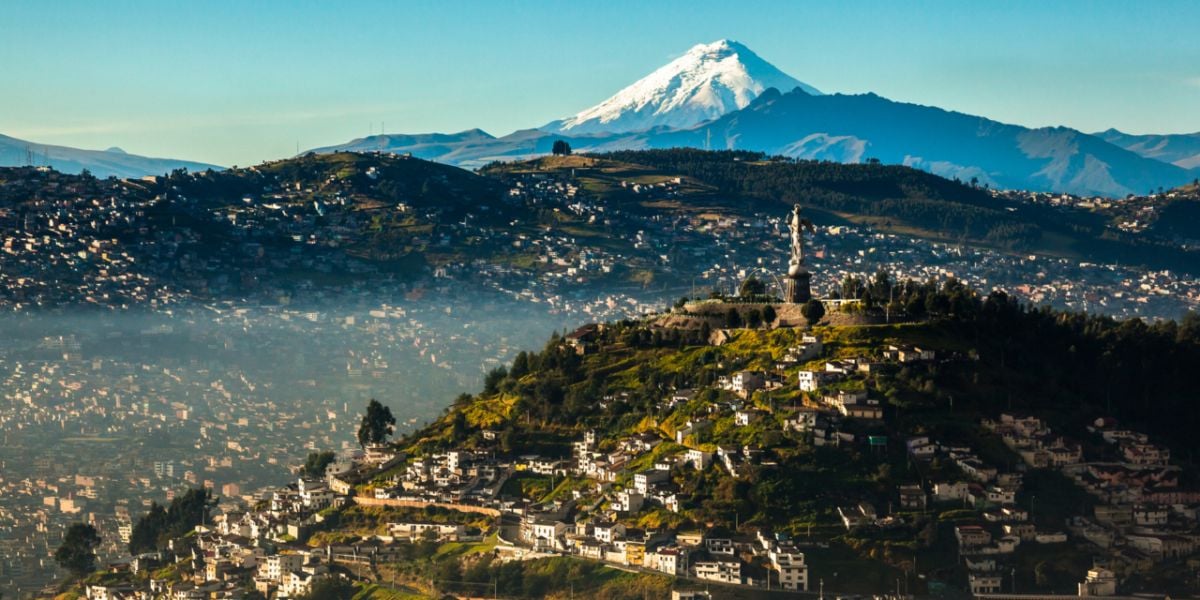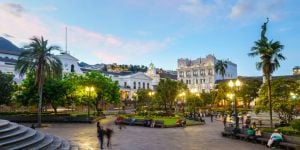
A few blatantly commercial websites will tell you that you can waltz out of the airport on arrival in Ecuador and buy yourself a chunk of local real estate right away! Well, you could, but it might not be a good investment. Your new home should warrant a bit more thought and effort.
Buying real estate
The real estate industry in Ecuador is somewhat disorganized. There is no true Multiple Service Listing (MSL) or central database, and most agents try to sell their own listings. Real estate agents do not operate together as a network and often compete against each other. Many properties are put up for sale directly by the owner along with listing it with two or three agents. Only a fraction actually display 'se arrienda' (For Sale) and 'se renta' (For Rent) signs. Online websites (OLX and Facebook) are popular places to advertise listings, but these can be challenging for a buyer's search due to the plethora of listings. Consequently, no single agent is aware of all sales or rental options available. It's also difficult to assess how trustworthy an agent ' even an expat agent ' might be. A licensing process for real estate agents does exist in Ecuador, but the many do not subscribe as this service bears no legal consequence or advantage for them.
Be your best ally
So, what's an expat to do? First, find yourself a short-term rental so that you can review your options and look at various areas and offers. From there, whether you have contacted a real estate agent or not, you can personally start the search for that more permanent roof over your head. Ask all around the areas you have chosen, preferably with a trusted, Spanish-fluent friend or facilitator at your side. Network with the locals and expats. Read the real estate notices in the newspapers which are all posted online via the local newspapers' websites. Inquire about what housing costs to rent and to buy from everyone you meet, both Ecuadorian and expat. Once you gain a fair idea of how things stand in the city you have chosen, and a few potential properties have hit your eye, it's time to weigh the pros and cons of renting versus owning in Ecuador.
Rent or own?
Seasoned expats advise living in a long-term rental for a year or two so that you can get your bearings before you buy or build your dream house in Ecuador. Many have even ended up continuing with renting since Ecuadorian laws are pro-tenant, as long as you have a valid, signed, notarized, and registered lease agreement. If you are planning on an investment visa, buying property can be a sound investment, as long as you do your homework and pay a fair price. Recent changes in government have repealed the 'Plusvalia' law, significantly lowering estate tax costs for real estate sales. This has spurred much interest in selling real estate. However, in some areas of Ecuador, be aware that the market may have been saturated. In other areas, such as the coast, buyer's bargains can be found. Reselling may not be a cinch in the near future in all areas, and may take time, often up to two to three years if you are expecting a hefty return on your investment. Nevertheless, when you decide to purchase property in Ecuador, you will need the services of a competent attorney.
Promises
Once negotiating is completed, a price will be determined between the owner and the buyer. Your attorney will check whether the title is free of liens or encumbrances as title insurance is not available in Ecuador. If the buyer does not wish to pay the total sum in one payment, the attorney will write a 'promesa de compraventa', which is a promise to buy, or promissory note. This notarized document states the sales price, the closing date, and lays out penalties for default along with a down payment or multiple payment amounts. The buyer usually makes a down payment of at least 10% upon signing the promesa. Unless the contract stipulates otherwise, the down payment is not refundable, so if you decide to back out of buying the property, this payment will be kept by the seller. The promesa contract is legally-binding for the buyer and the seller, so make sure you and your lawyer are satisfied with all details prior to signing and notarizing. Finally, the last closing step will be the execution of the 'compraventa'.
Purchasing the property
If the buyer wishes to pay the full price immediately, there is no need for a 'promesa de compraventa'. A 'compraventa', the actual purchasing contract, will suffice. This document should be reviewed by the buyer's attorney and will be signed at the 'Notaria' (notary office) in the presence of both parties. Notaries are similar to lawyers in the United States and Europe and function as to the legalization of all documents, even to keeping an original copy of your 'escrituras' or completed property deed, in their offices in perpetuity. Ecuadorian law specifies that a qualified translator must represent you during the notary process if you are not fluent in Spanish ' a real estate agent cannot take on this role. Note that the second the' compraventa' is signed, the terms of the 'promesa de compraventa', if different, becomes void. You will be expected to have already paid or transferred the purchase price or the payments remaining from the' promesa de comproventa' at the moment of signing at the notary office. If not already paid, the buyer and seller may make a previous agreement as to time of final payment. Closing costs, fees, and taxes are all are low in Ecuador, and a buyer generally pays around 1.5% of the purchase price for these costs, which can be handled by the buyer's attorney, who also registers the property at the land registry. He will need two certified, notarized copies of the signed 'compraventa' and proof that any required fees and taxes have been paid previously by either the buyer or the seller. The land registry will verify your title and register the property, saving a version for its records and returning a stamped version, the final deed, to you for your record keeping. When buying a newly constructed property, oftentimes the construction company owner or the owner of the new building might handle many of these duties for the buyer, but a prudent buyer will always verify with a personal real estate attorney to make sure that all tasks will have been accomplished correctly.
Whether you are buying or renting, don't forget to remember that, unless all utilities will be paid by your rental property owner, it will be your responsibility to sign up for and turn on all utilities! Water, gas, electricity: all will be significantly cheaper than anywhere in Europe or North America. Bienvenidos a Ecuador!
Useful links:
The Tenancy Law
Further information about the Tenancy Law
Article about real estate in Ecuador
Trovit
Olx Ecuador
Vive1
We do our best to provide accurate and up to date information. However, if you have noticed any inaccuracies in this article, please let us know in the comments section below.








